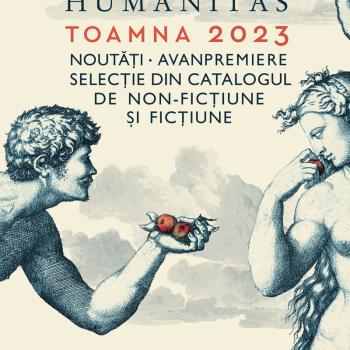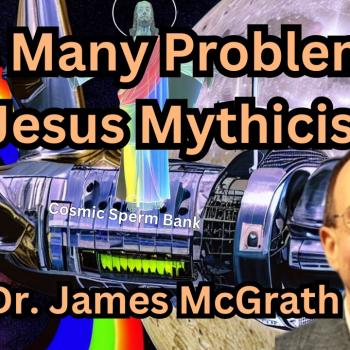I was asked on Facebook whether in my book I tackle the question of how Jesus could be divine and yet also have learned. The short answer is that I don’t attempt to engage in the work of constructing a systematic theology around my conclusions. As is usually the case, as a New Testament scholar my focus is on the historical and literary evidence and approaches. I don’t tell theologians what to do with the results. But I do tackle the fact that this is a hurdle for some people. I decided that I need to write at least one blog post (and perhaps more) that discusses this in ways that at least bridge the gap between New Testament and systematic theology.
Among the key points that I think need to be made, only some of which I tackle directly in the book, are the following: The New Testament is clear: “Jesus grew in wisdom.” The creeds are clear that Jesus was fully human. Apollonarianism was rejected by developing orthodoxy, even though it has been and continues to be a rampant force and perhaps even the dominant popular viewpoint. Most Christians side with Luther rather than Calvin, I think, in saying that the Logos was where Jesus was and rather than omnipresent as a result of the incarnation. Is omniscience different than omnipresence or omnipotence and if so why? And conversely, if Jesus knew everything already in the womb and could do literally anything, does that entail a denial of his humanity?
These are not new questions by any means. Ultimately I think that if one wishes to affirm that Christ had two natures then one should not then go on to always sacrifice and deny human attributes to keep from impacting or diminishing divine ones. If someone can find a consistent theological way of doing that, great. If they can live contently with mystery, fine. But the New Testament evidence seems clear, and for those whose primary authority is either scripture or historical evidence, then denying Jesus learned cannot be an option.
I suspect that people who read academic books are split over whether they expect or like for those writing in one field to discuss matters related to another that are directly connected. Some would surely prefer that we not leave those things to others who are specialists, just as some will prefer that those whose primary expertise is in an area address it and that amateurs not dabble. I’d be interested to hear from blog readers about your preferences. I will say that, thanks to blogging, a matter left out of a book can still be tackled by them elsewhere, as I do here.
Extracanonical texts such as the Infancy Gospel of Thomas illustrate the issues and the kinds of options the the church wrestled with and in some cases continues to wrestle with in thinking about Jesus as a child and yet affirming that he was divine. Here is an animated overview of the stories found in it, dubbed in gibberish to make it even more entertaining.
Previously on the blog and of possible relevance since it resulted from a discussion of that extracanonical text in one of my classes:
Also related to the divinity of Jesus and the Gospels:
https://ehrmanblog.org/in-what-sense-is-jesus-god-in-matthew-mark-and-luke-my-change-of-mind/













